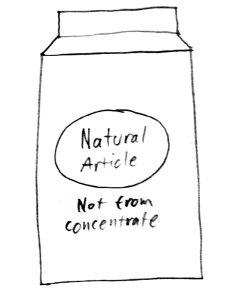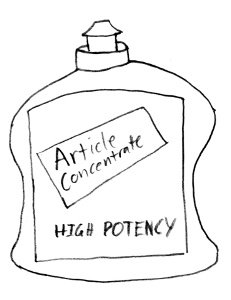Those who can't do

There's a particularly troublesome kind of writing that I and many others engage in, which is speculatively writing about some new goal, plan or system we're going to implement. This makes a certain kind of sense, because when you're used to writing about your ideas and you have a great new idea about how to do things better, of course you're excited to write about it. So you make a post like "I'm going to implement GTD now! GTD is going to be amazing and wonderful!" But if you haven't done it yet, how do you know?
When you read something like this, you're only getting one half of the picture. It's not really fair to write speculatively about a system; it distorts reality by making it appear that this system is more useful than it is. You get all of the "everything's going to be amazing" hype, but none of the tragic reality of "actually, it didn't work for me and I ended up stopping it". In its most extreme form, this can lead to very popular systems that don't actually work, like the infamous Uberman sleep schedule.
That's a problem for the audience, but I think there's also a significant problem for the author. Gollwitzer wrote that announcing your intentions in public can actually make you less likely to do them because merely announcing your plans feels good in the same way as actually implementing them successfully. Since the former is (much) easier than the latter, that means you lose the motivation to actually follow through. So not only does speculatively writing about a new system distort other people's perception of that system's usefulness, it also harms your own ability to implement it.
I think the solution to both problems is the same: accountability. It's not sufficient to merely say "I'm going to do this new thing"; to be truthful and maintain your motivation you need a specific plan to implement the thing with accountable results. I think a decent template for this is my recent time-tracking idea, where I committed to follow up in a week and a month with results of how useful it was.
Time-tracking aside, I'm often as guilty of this as anyone else, so I'd like to make an additional commitment: I won't write things that extoll the virtues of some particular system (mine or someone else's) without making an accountable plan to actually use that system and report back on its results. If I'm already using that system at the time, I'll just write what I've already observed, but for something speculative I have an obligation — to the truth and to myself — to pair the plan with the results.


